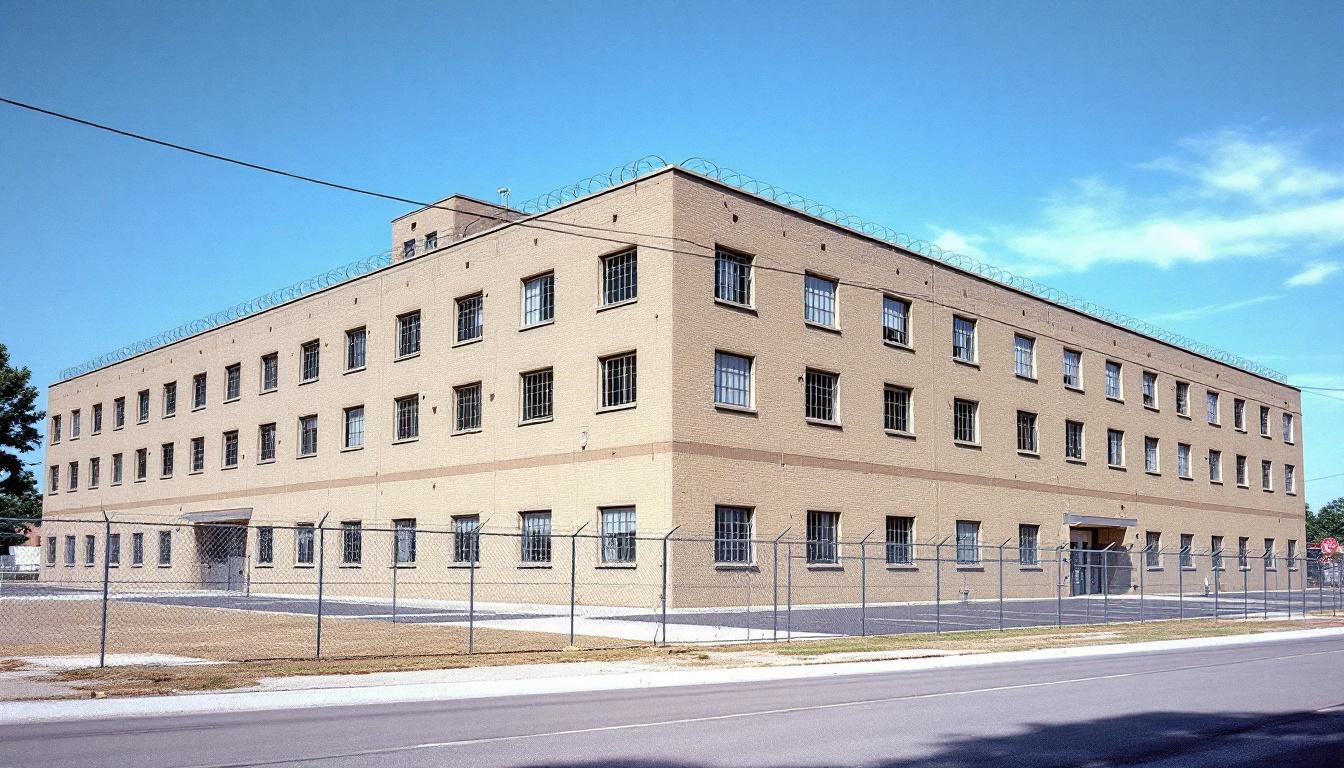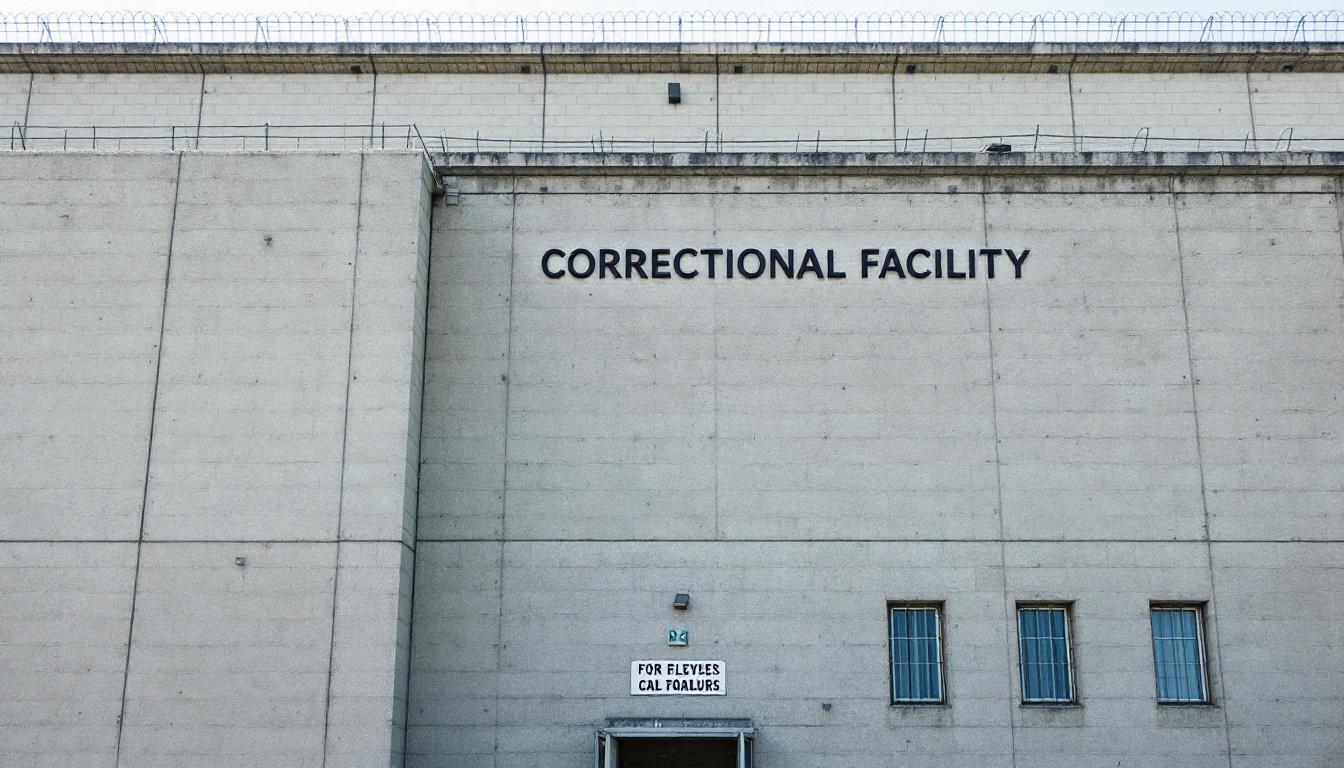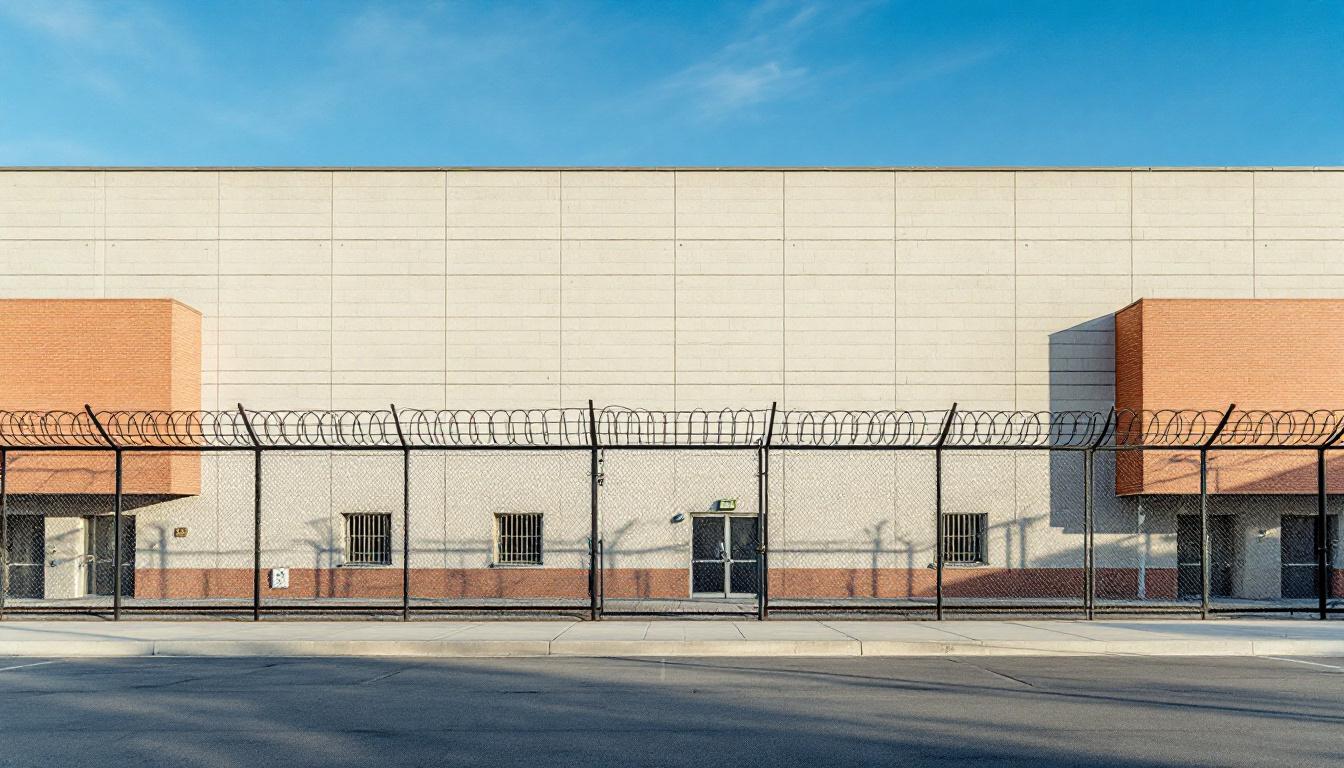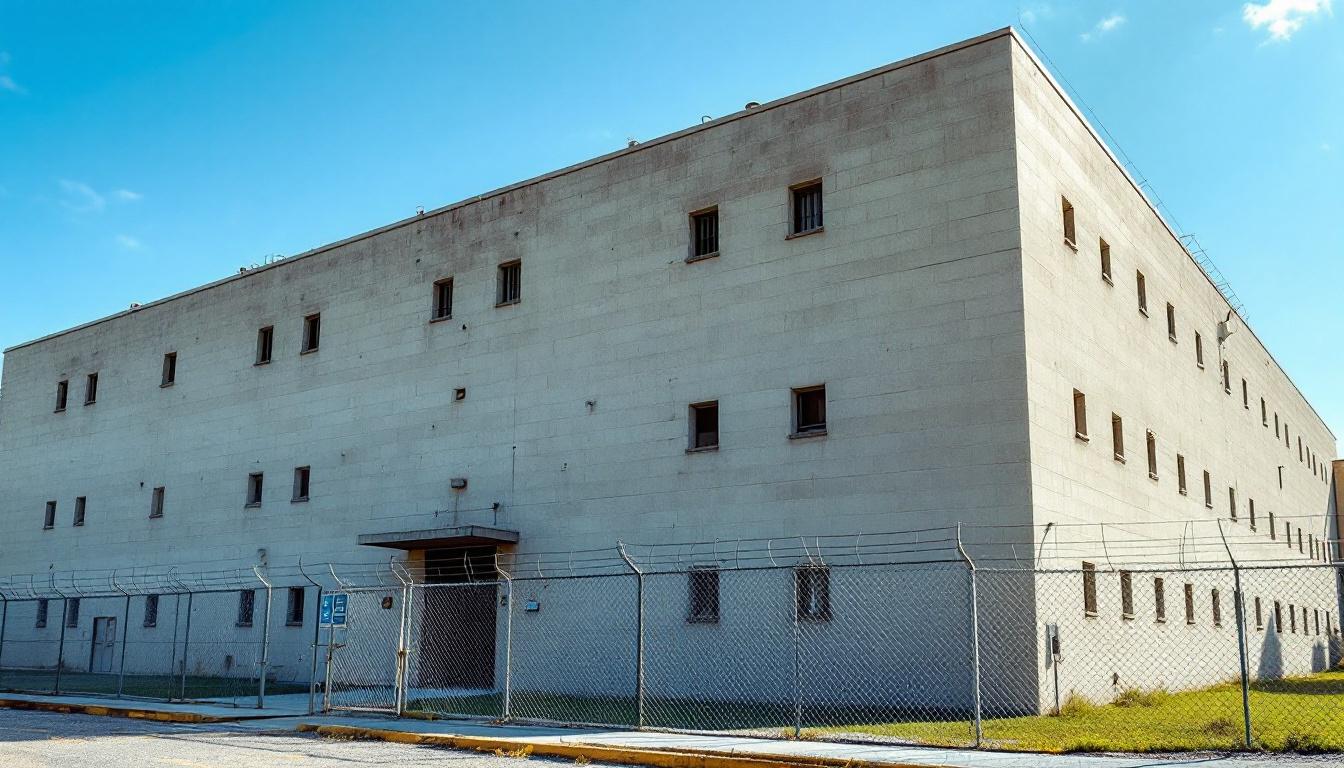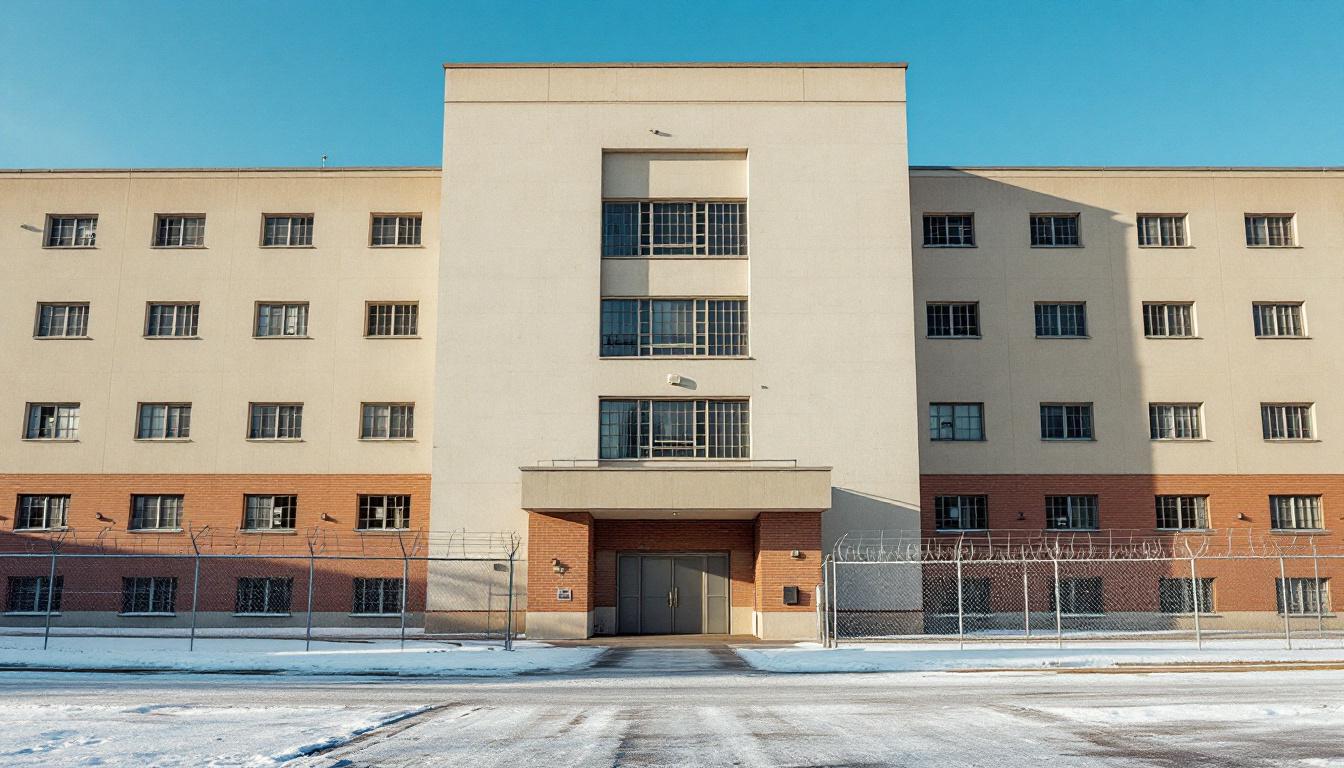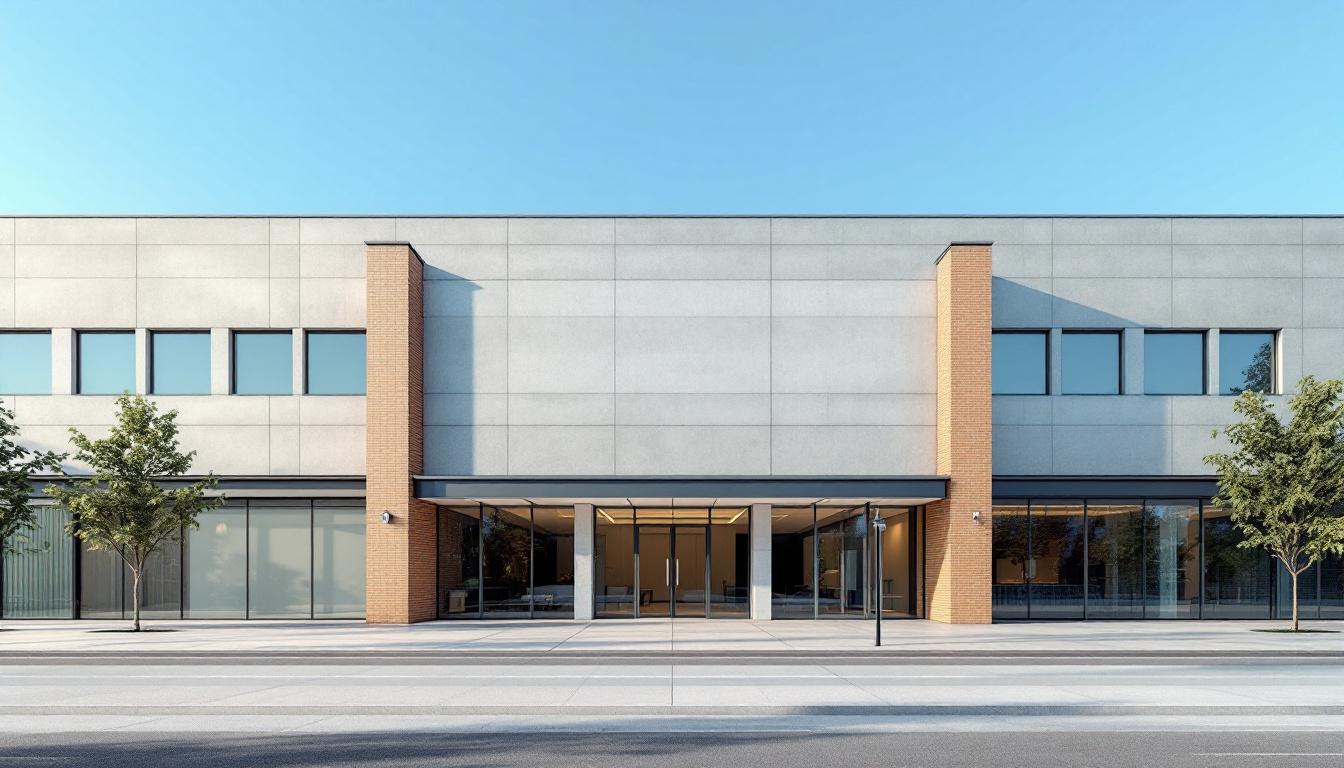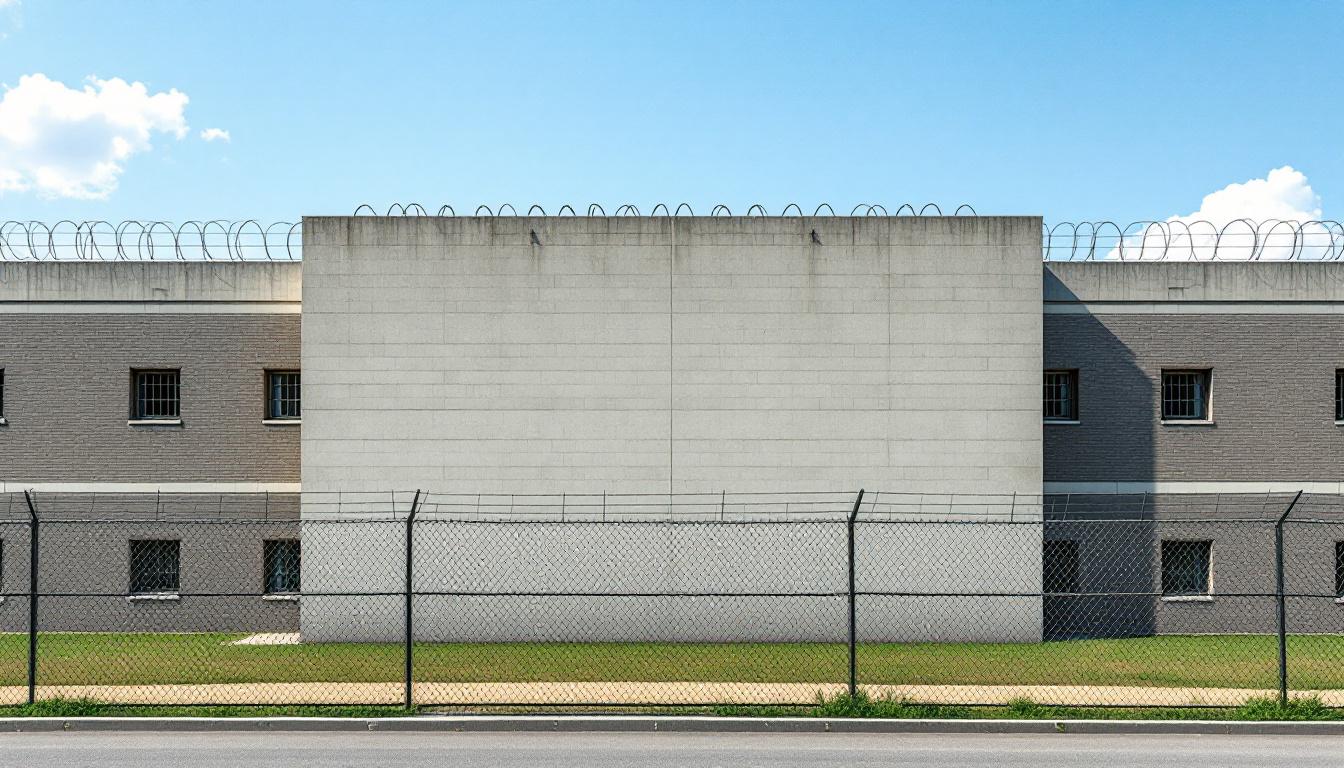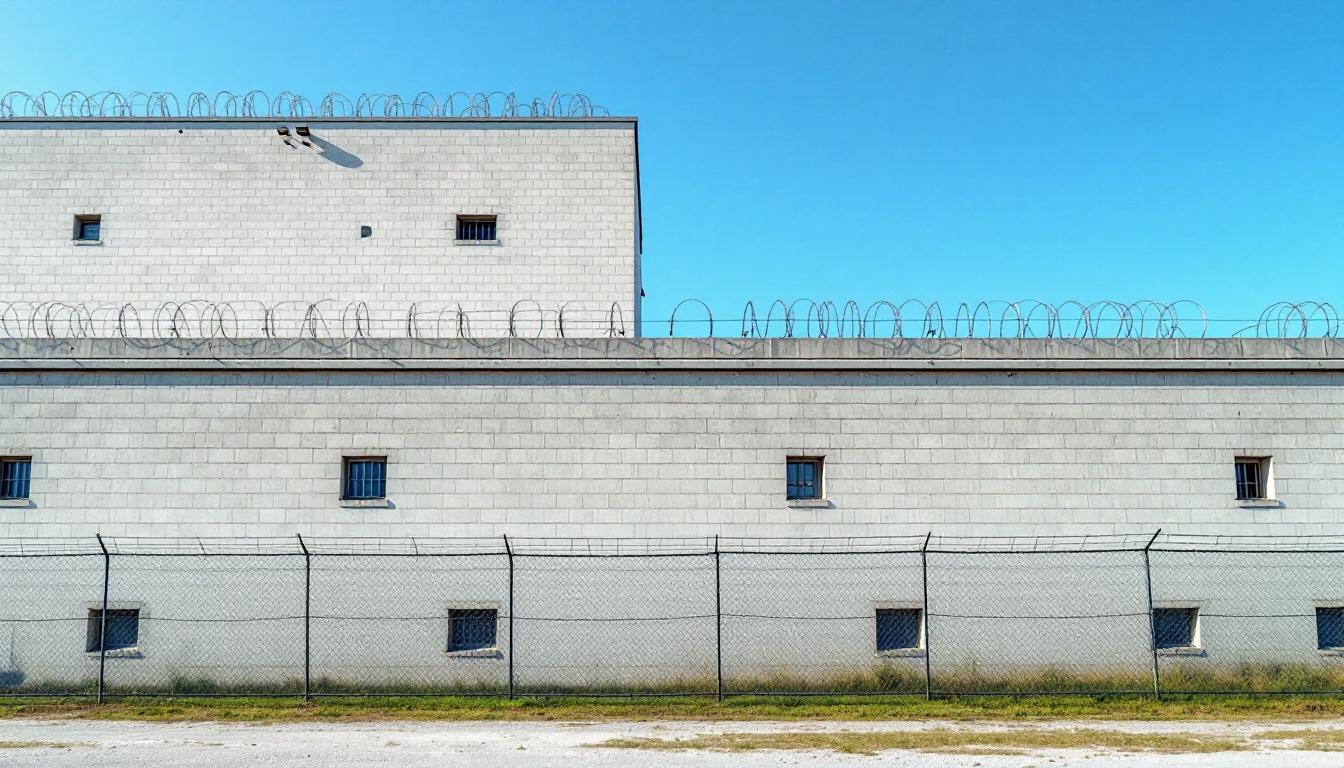
Quick Navigation
How to contact an inmate at Montgomery County Sheriff's Office
This comprehensive guide will walk you through how to connect with an inmate at Montgomery County Sheriff's Office. Follow the steps below to find an inmate and send letters and photos:
- Search for the inmate using our search tool below
- Create your account or log in to Penmate
- Write your message (up to 6,000 characters)
- Send instantly - inmates receive printed copies daily
Find an Inmate
Search for an inmate to start communicating today
Tip: You can search by first name, last name, or inmate ID number
To contact a person at Montgomery County Sheriff's Office start by searching for the person on the official facility website. Perform a search by following these steps:
- Step 1: Enter their first name and last name into the search form and click "Search"
- Step 2: Locate their inmate record
- Step 3: Write down their Inmate ID and any housing information provided
Important! Be sure to enter the person's full name. Nicknames should not be used.
How to Send Messages to Inmates

You can use your phone or computer to send emails, letters, and photos to an inmate. Messages are sent electronically to inmate tablets or kiosks at the facility. If you would like to send a message, start by searching for an inmate at Montgomery County Sheriff's Office.
Sending Photos and Postcards

A great way to send love and support to a loved one at Montgomery County Sheriff's Office is to send photos and postcards. It only takes a few minutes to send photos from your phone and it makes a huge difference. You can also mail postcards with words of support and inspiration, or design your own postcard for special moments like birthdays and holidays.
Important! Be sure not to send any explicit photos or they may not be approved by the facility. You can also use a photo printing app like Penmate to make sure your photos are printed at the correct size (4x6 or 3x5) and are mailed according to the rules and regulations of Montgomery County Sheriff's Office.
Frequently asked questions about Montgomery County Sheriff's Office
-
How long does it take to deliver a message?
If you're sending an email message your letter is usually delivered within 24-48 hours. For messages sent via mail you should expect delivery within 3-7 days. All messages will need be approved by Montgomery County Sheriff's Office.
-
How much does it cost to send a message to Montgomery County Sheriff's Office?
You can send a message free using your phone or mail a message via USPS for the price of a $0.60 stamp and envelope. You can also purchase credits or e-stamps from services starting at $1.99.
-
What services can I use to contact an inmate at Montgomery County Sheriff's Office?
Penmate
You can use Penmate to send letters and photos to an inmate from your phone. It's an easy way to stay in touch during your loved one's incarceration. Use the inmate locator to find an inmate's location and contact information, then you can send messages within a few minutes.
Securus messaging
Securus may be another option for communicating with an inmate at Montgomery County Sheriff's Office. You can create a friends and family account and purchase credits to send messages. All messages will be reviewed and must be approved by the facility.
JPay
Some county jails and state prisons may support sending messages with JPay. You must register an account with the system, find your loved one, and purchase stamps to send messages. For some locations you can also attach photos.
Smart Jail Mail
You may also check if Smart Jail Mail is available at Montgomery County Sheriff's Office. Smart Jail Mail is operated by Smart Communications and has contracted with some state and county jails. After purchasing credits, your messages and photos are sent to the facility, printed out, and then handed out to your loved one.
-
What is the mailing address of Montgomery County Sheriff's Office?
Mailing address:
Montgomery County Sheriff's Office
300 E Main St
Independence, KS 67301
Phone: (620) 330-1000Business hours:
- Monday: Open 24 hours
- Tuesday: Open 24 hours
- Wednesday: Open 24 hours
- Thursday: Open 24 hours
- Friday: Open 24 hours
- Saturday: Open 24 hours
- Sunday: Open 24 hours
-
What are the visiting hours at Montgomery County Sheriff's Office?
Visiting hours at Montgomery County Sheriff's Office vary by housing unit and security level. Generally, visits are scheduled on weekends and holidays, with some facilities offering weekday visits. Contact the facility directly at (620) 330-1000 or check their website for the current visiting schedule. Visits typically last 30-60 minutes and must be scheduled in advance.
-
What items are prohibited when sending mail to Montgomery County Sheriff's Office?
Prohibited items typically include: cash, personal checks, stamps, stickers, glitter, glue, tape, staples, paperclips, polaroid photos, musical or blank greeting cards, hardcover books, magazines with staples, and any items containing metal or electronics. Only send letters on plain white paper with blue or black ink. Photos must be printed on regular photo paper (no Polaroids). Always check with Montgomery County Sheriff's Office for their specific mail policies.
-
How do I send money to an inmate at Montgomery County Sheriff's Office?
You can send money to an inmate at Montgomery County Sheriff's Office through several methods: 1) Online using JPay, Access Corrections, or the facility's approved vendor, 2) Money orders mailed directly to the facility with the inmate's name and ID number, 3) Kiosks located in the facility lobby, or 4) Over the phone using a credit or debit card. Fees vary by method, typically ranging from $2.95 to $11.95 per transaction.
-
Can I schedule a video visit with an inmate at Montgomery County Sheriff's Office?
Many facilities now offer video visitation as an alternative to in-person visits. At Montgomery County Sheriff's Office, video visits may be available through services like Penmate, Securus Video Connect, GTL, or ICSolutions. Video visits typically cost $10-20 for 20-30 minutes and must be scheduled in advance. You'll need a computer or smartphone with a camera and reliable internet connection. Contact the facility for their specific video visitation policies and approved vendors.
-
What identification do I need to visit an inmate at Montgomery County Sheriff's Office?
All visitors must present valid government-issued photo identification such as a driver's license, state ID, passport, or military ID. Minors must be accompanied by a parent or legal guardian who can provide the minor's birth certificate. Some facilities require visitors to be on the inmate's approved visitation list, which may require a background check. Contact Montgomery County Sheriff's Office for specific ID requirements and visitor approval procedures.
-
How can I find out an inmate's release date?
To find an inmate's release date at Montgomery County Sheriff's Office, you can: 1) Use the online inmate search tool if available, 2) Call the facility's records department, 3) Contact the inmate's case manager or counselor, or 4) Have the inmate provide this information during a call or visit. For privacy reasons, some facilities only release this information to immediate family members.
Facility Overview
Contact Information
Montgomery County Sheriff's Office300 E Main St
Independence, KS 67301
Phone: (620) 330-1000
Official Website

About Montgomery County Sheriff's Office
Comprehensive correctional services form the operational foundation at Montgomery County Jail, KS, where systematic processing of individuals through various stages of the justice system occurs within Independence's established correctional framework. The facility typically provides essential booking procedures, housing arrangements, and coordinated case management services that connect individuals with legal counsel, court scheduling, and family communication systems. Through structured intake processes and ongoing assessment protocols, staff members generally work to maintain security standards while facilitating necessary legal proceedings and personal visits.
Positioned strategically within southeastern Kansas's regional corrections network, this Independence-based facility serves as a critical component in Montgomery County's broader justice system infrastructure. The jail typically coordinates with surrounding county facilities, state correctional institutions, and local courts to ensure efficient transfer procedures and information sharing throughout the judicial process. Administrative operations generally include collaboration with probation services, mental health providers, and substance abuse counselors who may offer specialized programs designed to address underlying issues contributing to criminal behavior.
Historical development of correctional services in the Independence area reflects broader trends across midwest region facilities, where county jails have evolved from simple holding facilities into more comprehensive processing centers. Montgomery County Jail, KS generally maintains connections with regional training programs, professional development initiatives, and inter-agency partnerships that enhance operational effectiveness. The facility's role within Kansas's correctional hierarchy typically involves managing pre-trial detainees, sentenced individuals serving shorter terms, and those awaiting transfer to state facilities, creating a vital link between community-based services and long-term correctional programming throughout the region.
Programs & Services
From foundational education to specialized vocational training, Montgomery County Jail in Kansas typically provides a comprehensive range of opportunities designed to support individual growth and development. The facility's approach to programming often emphasizes practical skill-building alongside personal development. Individuals may participate in various structured activities that address both immediate needs and long-term goals for successful community reintegration.
Educational opportunities often include basic literacy programs and GED preparation courses that help individuals complete their high school education. Moreover, vocational training programs may offer hands-on experience in trades such as carpentry, providing individuals with marketable skills for future employment. These practical training opportunities typically focus on developing technical competencies that align with local job market demands.
The facility may also provide therapeutic services through substance abuse treatment programs that address underlying issues contributing to criminal behavior. Additionally, support services often include life coaching sessions that help individuals develop personal management skills and goal-setting strategies. Some facilities in the region may offer specialized training opportunities such as upholstery work, which provides individuals with detailed craftsmanship skills. These comprehensive support services typically work together to address the varied needs of the incarcerated population.
Daily Life & Visitation
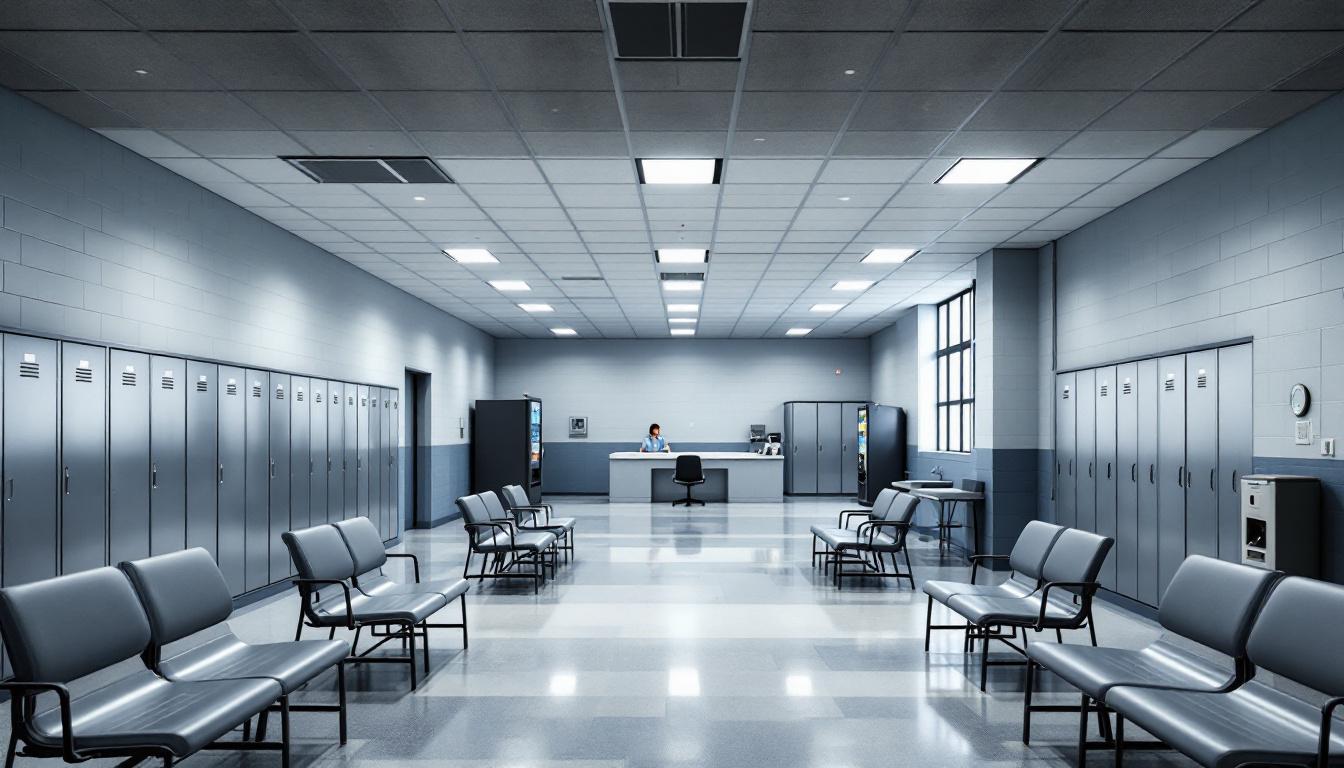
The sound of breakfast preparation now signals the start of each day for individuals housed at Montgomery County Jail, as staff regularly coordinate meal distribution and facility operations. Daily routines typically follow a structured schedule that includes designated times for meals, recreation, and various programming activities. Individuals generally wake early and participate in facility counts before receiving their morning meal, with the day organized around maintaining order and providing essential services.
Living accommodations consist of housing units that may vary in size and configuration depending on classification levels and available space. Individuals typically share cells or dormitory-style housing, with basic furnishings that usually include beds, storage areas, and shared bathroom facilities. Moreover, personal property is generally limited to approved items, while commissary services often provide access to additional food items, hygiene products, and writing materials for those with available funds.
Whereas recreational opportunities may include access to television areas, reading materials, and scheduled outdoor time when weather permits, structured programming schedules offer various activities designed to provide routine and structure. Work assignments within the facility typically involve food service, cleaning duties, or maintenance tasks that help individuals remain productive during their stay. Family connections are generally maintained through scheduled visitation periods and telephone access, though these services may have specific guidelines and limitations that help balance security needs with maintaining important personal relationships.
Ready to Connect?
Start communicating with your loved one today
Search for an Inmate
